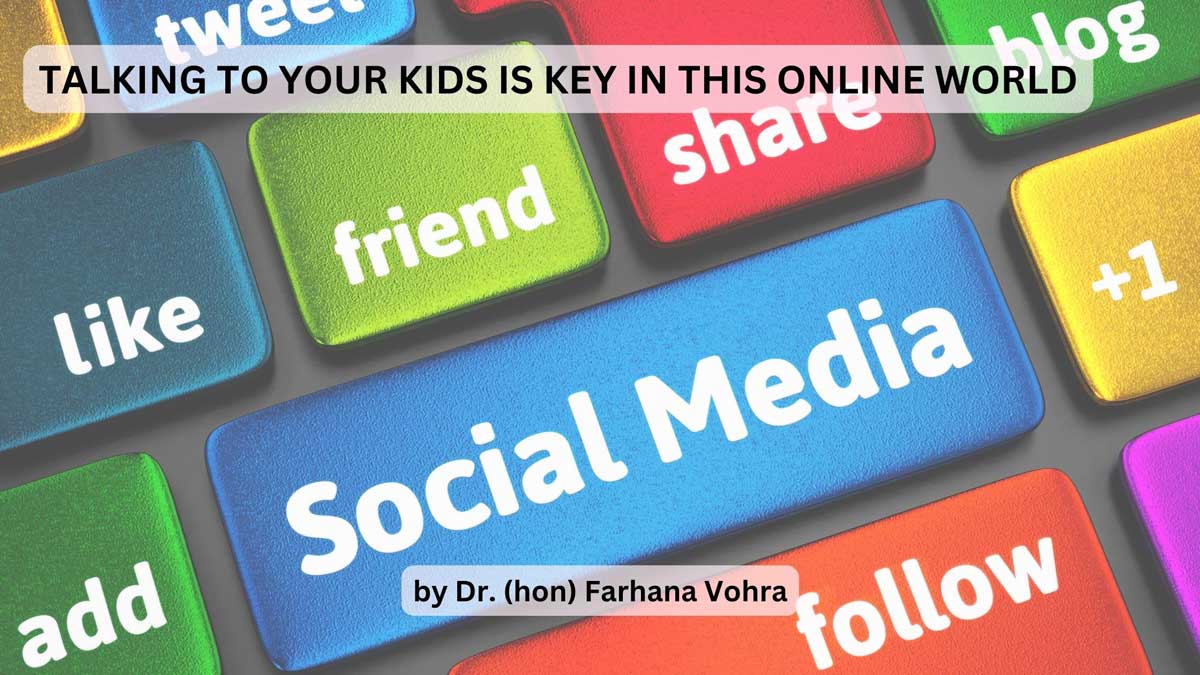Talking to your kids is key in this online world
The relationship with social media is one of the top five issues parents bring into conversations, in the clinic and with each other, and across socio-economic platforms. Parents are increasingly aware of how disconnected children are when they are connected to the online space, but struggle to tackle this issue.
A new global report from a US-based non-profit Sapien Labs confirms what most parents suspect and fear – that there is a direct link between the age of first ownership of a smartphone or tablet, and mental health. The younger children are when they are first given a smartphone or a tablet, the greater their mental health challenges. The study looks at all aspects of well-being, including suicidal thoughts, feelings of aggression towards others, a sense of being detached from reality, and hallucinations. All these declined when smartphones were given later to young people, the survey found.
The difference between boys and girls is shocking. As many as 74% girls experienced mental health challenges when given a device at six. The figure drops to 46% at 18 – but is still very high. For boys, the corresponding change was 42% to 36%, from six to 18. Clearly, girls tend to take on more pressure for social acceptance than boys do, which negatively impacts their mental health.
We believe that giving a smartphone to a child is no different from giving a Lamborghini to someone who doesn’t know how to drive. Navigating the online world needs a set of skills that takes time to develop. Neurodevelopmentally, these skills are not fully developed well into the late 20s. Even as adults, we struggle with monitoring time spent on addictive Instagram reels; it’s much harder for children with a developing brain to know when to switch off. Yet, at the same time, in an era where smartphones can pretty much regulate our lives and are key to so many daily functions, it is impractical to force it out of our children’s adolescence. So, we have collated a simple three-point suggestion on what parents can do to delay and regulate access to smartphones, or limit their usage.
First, collective delay. The ideal and most effective form of gatekeeping is to collaborate with other parents in your child’s social group and delay the introduction or access to social media platforms. Social media is a powerful arena for teens to find acceptance and being the only parent holding off can do more harm than good, leaving a child feeling isolated and left out. “Wait until 8th” [grade] is one such initiative – getting parents to collectively pledge their allegiance to delaying children’s access to social media and not starting their journey with a smartphone too early.
Second, a family tech agreement. Parents need to bring their children’s voices into the conversation as social media’s relevance changes dramatically from one social group to another. The tech agreement should give children a voice so they feel heard and respected, but should keep the control and decision-making with the parents. After all, adults need to be the ones in the driving seat of the Lamborghini.
This can include healthy limits of when, and how much, one can engage with phones and the platforms that are allowed; it should build the link between responsibilities and rights. Children often defend online access by bringing up rights. Just as the right to vote is the responsibility to uphold democratic values, the right to be on social media is a responsibility to learn to navigate life as a socialised individual.
Giving children chores around the house helps them build that sense of responsibility and tethers them to what they need to do before the flight into cyberspace. Rights without responsibilities is an irresponsible privilege.
The agreement should also be flexible and adaptive. It should respond to the needs of the child and their current time table, should change from child to child, and should be different during school time and holiday.
Finally, model healthy behaviour and help them find alternatives. Children turn towards smartphones because it is easy and available, it’s also what they see adults around them use most often. Parents can engage children with games such as family game night, sports and play in the park, including playing online games in person.
Recently at a birthday party, 13-year-olds played a physical version of Minecraft’s bed wars with plastic swords, lots of laughter and sweat. Anecdotal evidence has shown that the more children are engaged in the physical world, the less they miss the online. No-tech camps in the United States have proved that children can have fun without digital access. Children enjoying sport or hobbies use their devices as a tool they engage in for short periods, and not a lifeline, giving them purpose and belonging.
There are several effective and efficient ways in which we can become gatekeepers to our children’s access to the online world. We must communicate and engage with our children so that we don’t lose them to the internet and social media – that is our prerogative as parents.
Megha Mawandia is a family therapist and Aparna Piramal Raje is the author of Chemical Khichdi: How I Hacked My Mental Health.
Both are parents to teens and tweens. The views expressed are personal.
Thanks for reading!
Credits: Aparna Piramal Raje and Megha Mawandia
Published in the Hindustan Times.



Leave a Reply